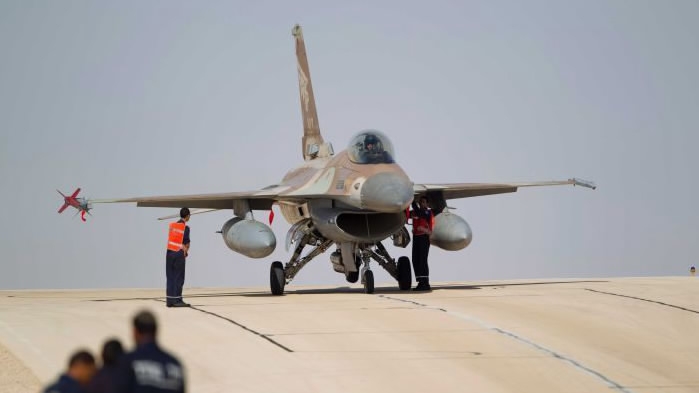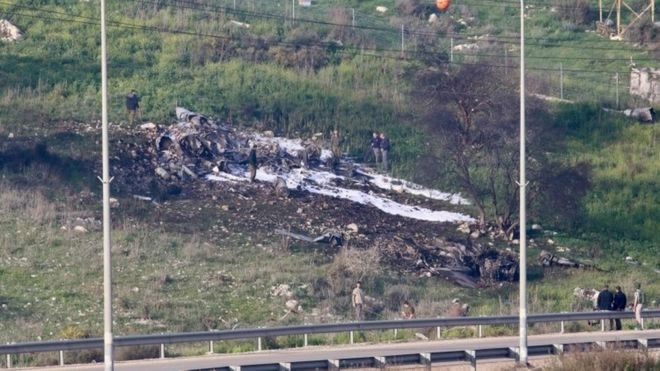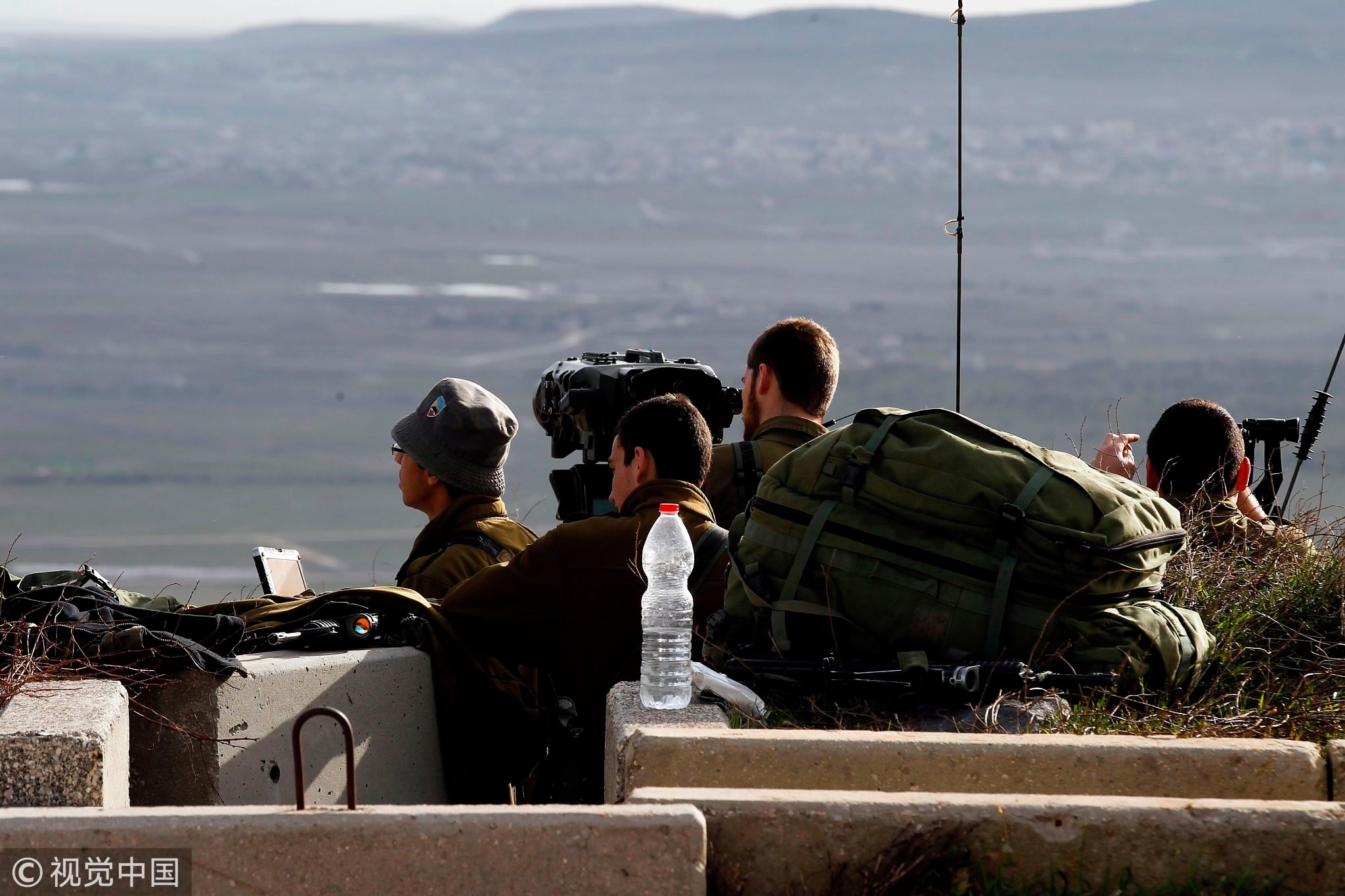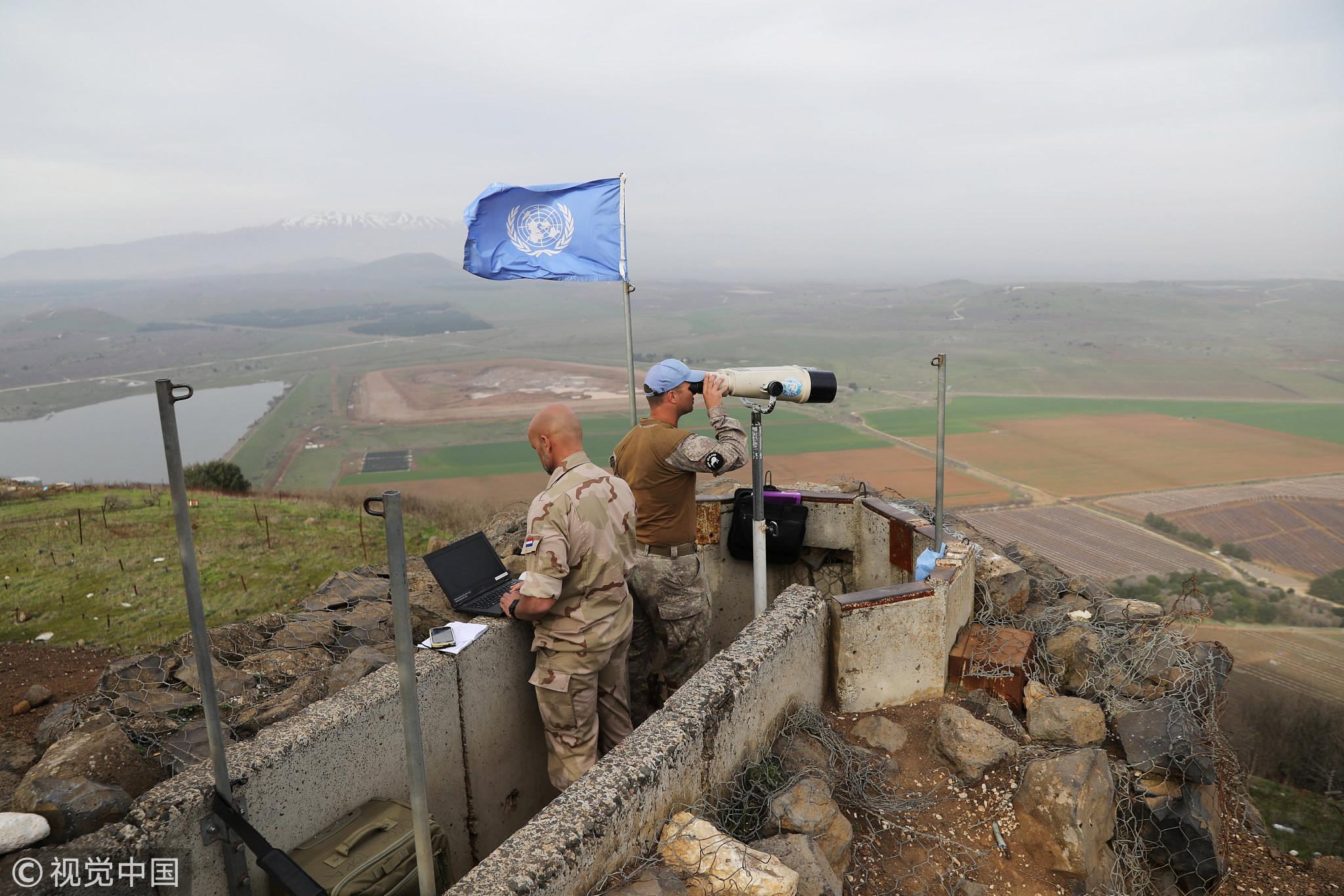
Opinions
10:55, 11-Feb-2018
Opinion: Why Israel has to launch air strikes in Syria
Guest Commentary by Wang Jin

An Israeli F-16 warplane was shot down by Syrian military while targeting what Israel called “Iranian sites” responsible for launching a drone into occupied Golan Heights on Saturday. Although it is not the first time that an Israeli warplane has ventured into Syrian airspace, it is the first Israeli warplane shot down in Syria since the Syria civil war began in 2011.

An Israeli F-16 jet crashed near Harduf village, Israel, on Friday. /Reuters Photo
An Israeli F-16 jet crashed near Harduf village, Israel, on Friday. /Reuters Photo
The Israeli military said it later attacked 12 Syrian and Iranian targets in Syria in what it described as “large-scale” raids. It said the shooting down of the plane is the “most serious” incident between the arch foes, Israel and Iran, since the start of the Syrian civil war, but Israel does not seek an escalation.
Just days before the incident on February 6, the Israeli Security Cabinet, led by Israel Prime Minister Benjamin Netanyahu and Defense Minister Avigdor Liberman, paid a visit to the Northern border area. For Israel, the civil war in its northern neighbor Syria is always a sensitive topic. Many Israeli experts and analysts believe a future war between Israel and “terrorist group” Hezbollah in southern Syria and Lebanon might be inevitable.
During the years of the Syria civil war, Israel has launched dozens of air strikes against military targets inside Syria. Israeli military and intelligence establishments believe that Syria has already become an important front line and base for Iran and Shia militant groups preparing wars and attacks against Israel. Therefore, Israel believes that it needs to take measures to eliminate these threats and ensure the safety of its northern border area with Syria.

Israeli solders taking positions in the Israeli-occupied Golan Heights near the border with Syria on Friday. /VCG Photo
Israeli solders taking positions in the Israeli-occupied Golan Heights near the border with Syria on Friday. /VCG Photo
Israel’s stance and position is unique and awkward. First, after the Syria civil war began, especially after Hezbollah, which controls a large area in southern Lebanon and is not curbed by Lebanon's central government, sent its militants into Syria to support the Syrian government in 2012, Israel sensed the threat from the Shia group in northern border area, especially in the Golan Heights area where a fragile cease-fire line has been kept since the 1980s. Israel does not allow weapons of mass destruction to reach Hezbollah – which Israel views as a “terrorist group” – from Iran and Syria government forces, and tries to deter any “weapons transferring” by both Iran and Syrian government forces to Hezbollah inside Syria.
Second, Israel does not want to see a presence by Iranian and other Iran-backed militant groups in the Golan Heights. Israel believes that Iran Islamic Revolutionary Guards and Iranian-backed military groups may target Israel with drones and even missiles. What Israel demands is to keep Iran’s forces and proxies at a distance of up to 60 kilometers from the cease-fire line in the Golan Heights, and create a buffer zone up to Suwayda in the east and Damascus in the north.

UN soldiers look out on a post at Mount Avital, in the Israeli-occupied Golan Heights near the Israeli-Syrian border Friday. /VCG Photo
UN soldiers look out on a post at Mount Avital, in the Israeli-occupied Golan Heights near the Israeli-Syrian border Friday. /VCG Photo
Third, although Israel has its own concerns and interest in the peace process and post-war construction of Syria, Israel cannot attend the Syria peace conference, given the fact that Israel is not seen as a “legal existence” by most Arab states. Meanwhile, the “unbroken alliance” of Israel and the United States led by the Trump administration is not interested in actively participating in the Syria peace process. The only state that Israel can depend on to express its special concerns is Russia, who is the “de facto” leader of the peace process. However, Russia also needs to consider the interests of Iran and Turkey, who are also important, in determining the participants in the peace process. Ultimately, Israel’s interests are always ignored or forgotten by the other parties.
Israel’s limited confidence regarding the Syria civil war is based on the fact that they can patrol the airspace over the Arab world without much competition from anybody else, and the downed warplane may threaten its limited strategic confidence and provoke the escalation of confrontation between Israel and Iran-backed militant groups in the future.
(Wang Jin is a PhD candidate at the School of Political Science, University of Haifa and a research fellow at the Syria Research Center, Northwest University. The article reflects the author's opinion, and not necessarily the view of CGTN.)

SITEMAP
Copyright © 2018 CGTN. Beijing ICP prepared NO.16065310-3
Copyright © 2018 CGTN. Beijing ICP prepared NO.16065310-3